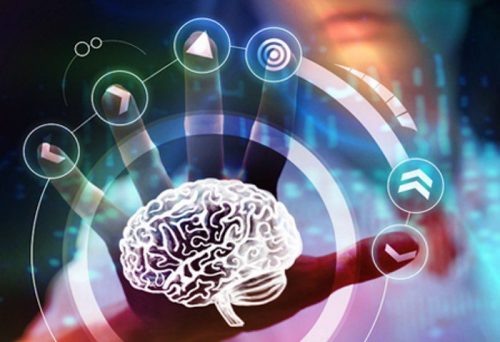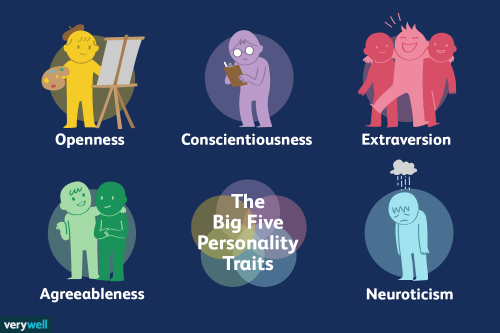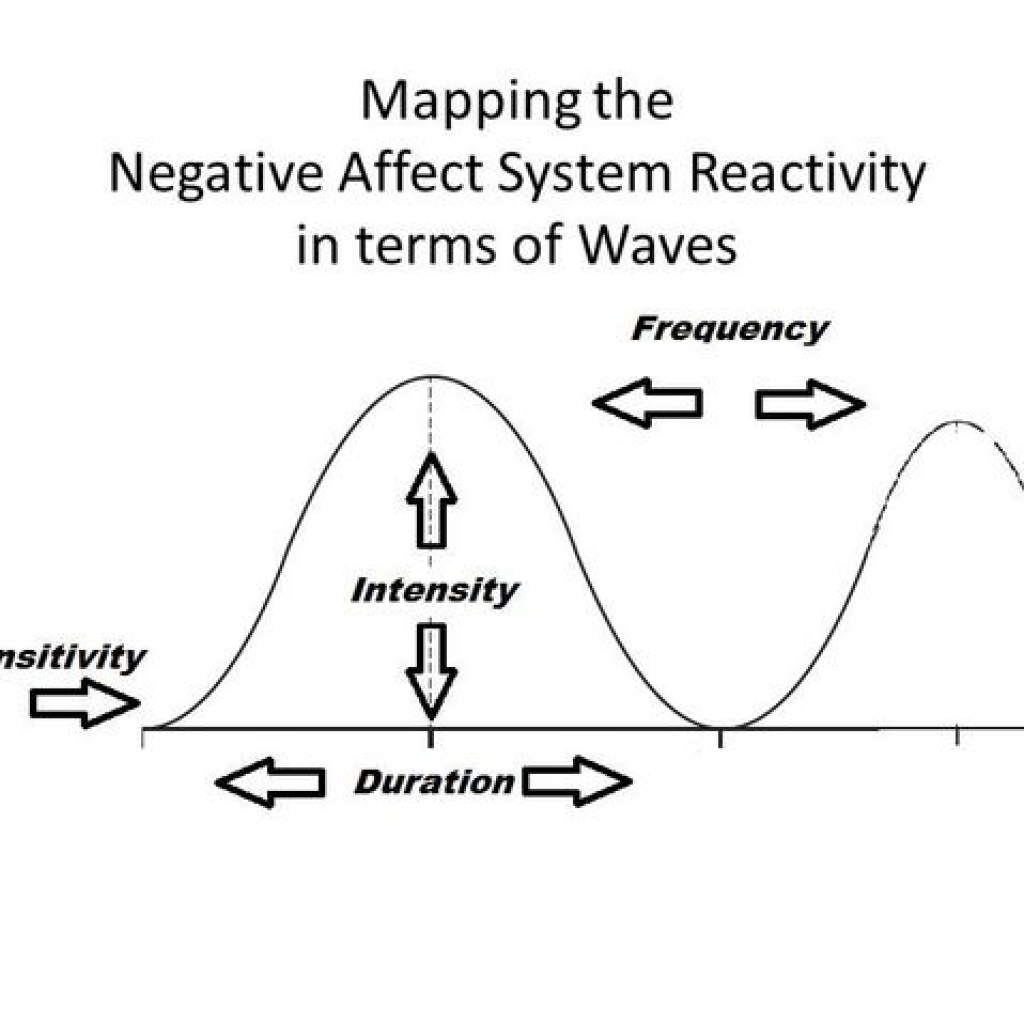

Disclaimer: I am not a psychologist nor do I have an incredibly advanced understanding of neurochemistry. I do however understand a lot of the basic concepts of psychology, motivation and personal development. I have formed my own conclusions that have been incredibly useful for myself, my friends and my clients. I hope you too find these concepts useful, but take them with a grain of salt.
Have you ever experienced a surge of negative emotions but not quite understood where it came from? Have you ever looked at someone who has “everything” and thought to yourself “Ide be so happy if I was them”? You may be experiencing some form of trait neurotism (TN).
How our basic human hard-wiring plays a role in our everyday reality
Humans are neurologically hardwired to be social creatures as we have developed through thousands of years of being tribal animals. Humans, as inherently social creatures, generally try to conform to various ‘norms’ to avoid social ramifications. Consequently, humans assume the ‘traits’ of those around us to better navigate the social landscape.
“You are the sum of the 5 people you spend the most time around”
Said another way, we are absorbing information from others around us on a subconscious level, ie, body language, facial expressions, acknowledgements, agreement, disagreement etc. We are absorbing this information in order to orientate ourselves in the world. This is how your brain maps out your reality and tries to give you signals to adjust your course of action if need be.
It is all part of our biological programming to orientate ourselves in the world and help the system (the human) survive and replicate. You are hardwired to analyse your behaviour, traits, and actions; helping us avoid bad situations which can reduce your survival and replication and move towards positive situations which may aid and abed our survival and replication. This comes from years of conditioning, from parents, friends, colleagues and yourself. It can also come from seeing others traits, characteristics or actions and then comparing yourself to those traits (also know as comparison syndrome)
But how does this programming work? Why do we experience it?
It is because we feel these interactions through negative or positive emotions. In psychology this is referred to as the “positive affect system” and “negative affect system”. Vertebrate animals harbour these psychological systems to support their efforts to survive and replicate in a complicated environment. As vertebrate animals ourselves, we too must learn from our mistakes through analysis and observing the mistakes or successful behaviour of others.
Although humans have access to these two psychological systems, other animals such as dogs are also in-tune with these systems, which allows them to be socially conditioned. Positive and negative rewards are all you need to condition the animal to behave in a suitable manner.
In order to fully understand what trait neuroticism (TN) is, and why all these concepts are important, you need to know how the positive and negative affect system interact with our conscious experience, especially in regard to traits. You also need to understand what I am defining as a trait… so here are some basic definitions:

What Is A Trait?
A trait is a distinguishing quality or characteristic, typically one belonging to a person. You could also refer to these as heireacheys. Anything that can be measured on a scale from 1-10 is in this game, with the masters or leaders being at the top of each trait. Here are some examples: particular skills, appearance, skin, hair, posture, charisma, weight, physique, memory, laziness, work ethic, etc. The list is endless. If you can think of a high level example you can usually think of a low level example and map out the landscape between.

What Is The Positive Affect System?
This is your reward centre in your brain which will make you feel joy, pleasure or satisfaction after you achieve something which you value as a worthy trait or accomplishment.
This is the small spark of joy you feel when you look in the mirror and you are looking good or you have lost weight. Why did you feel great? Because in those situations, you have moved up on your perceived 1-10 scale of that trait spectrum (appearance & physique). Another example is the sense of satisfaction after having an enjoyable social experience or meeting an interesting new person. It is your positive affect system rewarding you.
When people congratulate us or give us attention, we are deeply rewarded. “Good shot”, “well done” and “congratulations on that promotion” are all expressions of social acknowledgment of another’s positive trait or accomplishment. The recipient will soon feel the effects of this social reward from their positive affect system. They have been re-affirmed that they have moved up, or are placing high, on a trait spectrum.
“Be so great they can’t ignore you” is a classic line from the self-development world, which reminds us that there is a light at the end of the tunnel, all the hard work will eventually get us that sweet reward.
The person who brags or constantly talks about their traits and accomplishments may be addicted to the positive affect system. They may appear self-absorbed to those around them however, they may be unconsciously seeking a small reward from others acknowledging their high trait or accomplishment. They may have the tendency to regularly think or obsess over their high traits, that spark emotion through the positive affect system.
On a subconscious level, when we see people expressing qualities which we deem as a positive trait, we are usually ‘attracted’ to them. Attraction comes in various forms such as eye contact, interest, envy, lust etc. If someone is an outlier in a specific trait such as skill, physical ability, mental ability, natually we watch and we follow. In short, they get our attention. We think “I want to be more like them”. We idolise them and the things they do. We are drawn towards them, thinking that they may facilitate the growth of that trait in ourselves. We do this with our choices in friends, idols, mentors, social contacts and potential mates. We seek others that mirror our traits or that may help us improve our traits.
The qualities we admire in others are usually high-level attributes which we are seeking to reproduce in ourselves.
You may see someone in the room who has similar traits to you and instantly feel connected to them. I would recommend over the next few days that you try to catch yourself doing this, it can be a very rewarding and consciousness provoking experience.

What Is The Negative Affect System?
The negative affect system, when directed internally, can end in guilt or shame. We constantly think about our own traits, or the traits of others, and make judgements towards ourselves that can result in harsh critique of our own self-worth.
Some consider social media to be bad for self-esteem and ideas of self-worth. Take Instagram for example, users are bombarded by photo-shopped images of those whose lives seem “perfect” and look in better shape than us. If we scroll through Instagram you are bound to think to yourself:
“They are in perfect shape”;
“I wish I could do that skill”; or
“I would be happy if I was on holiday on a tropical island”; or
“That is a really nice car”.
In ancient times you would have very little exposure to so many amazing individuals. Your tribe would be 50-500 people and many of which would have similar characteristics. Now that the internet exists, you can easily consume a wide range of things to compare yourself to.
Many people judge others for having lower level attributes than ourselves, especially if we deem that trait to be valuable. We may despise those who lack the qualities we deem as necessary or fundamental. How fast do we make these judgements? Almost instantly! As soon as you look at another human, on some level your brain is analysing their traits and comparing them to yours.

What Is Neuroticism?
Neuroticism is one of the Big Five higher-order personality traits. Individuals who score high on neuroticism are more likely than average to be moody and to experience such feelings as anxiety, worry, fear, anger, frustration, envy, jealousy, guilt, depressed mood, and loneliness.
On the flip side, those considered neurotic tend to be self-aware and self-critical. These traits can be very positive. In terms of personal development, high-quality, accurate introspective is intensely therapeutic when applied constructively. A little can be very rewarding, however, too much can be a bad thing.

Okay, now you understand how the positive and negative affect systems work. You understand what traits are and you understand what neuroticism is, so what is trait neuroticism?
Trait Neuroticism (TN) is considered a strong attachment to the negative affect system that results in a neurotic psychological state. In other words, TN is our self-reflective stream that can narrate and evaluate things that are happening however, its strongly affected by the negative (and positive) events that happen around us.
Multiple good events is interpreted as having a good day. Multiple bad events can be interpreted as having a terrible, terrible day. This may appear to some as a form of bipolar to those who do not understand these concepts.
TN can drive us to change in order to avoid these negative emotions that skew the way we perceive ourselves. It can negatively push us to make improvements in our selves. A classic example we have all heard: “my doctor told me I need to lose weight for my health.” The trait of health is low, so low that it is impacting your longevity, thus causing you to feel the negative affect system with more intensity. This can cause a neurotic mindset which can facilitate behavioural change. This is obviously a more extreme example; however some can be triggered by less intense events.
There exist individuals with varying levels of TN. A person with low levels of TN may not feel much from the negative affect system and as a result may seem reckless, wild or out of control to others. An individual with high levels of TN may feel a range of negative emotions while they are in everyday situations such as the example below:
A classic example of someone high in TN would be this scene from American Psycho.
The business card scene is an example of someone strongly affected by TN (plus some other obvious psychopathic issues). As you can see from the video, Patrick Bateman (played by Christen Bale) is obsessed with his colleagues’ traits. He feels strong negative emotion when he does not score higher than other people (a classic perfectionist). Earlier in the clip, his suit was touched by the colleague sitting abreast Patrick Bateman and this was enough for him to snap and feel intense frustration.
Our links to TN can be broken down into a few categories:
Sensitivity: How often is the negative affect system triggered? It can be triggered by low level stressors or the individual may be more resilient. If you a triggered by an event such as someone touching your suit, you may be negatively affected by the lowering of the “clean clothing” trait.
Frequency: How often is the system activated? This relates to how often the individual is being affected by the stressor. Is it happening all day, everyday? Several times a day? Only 1-2 a day?
Intensity: How strong is the negative response? Is the individual bummed or devastated, a big nervous, irritated or filled with rage? This is evident by the sweating as a reaction to the business card shown in the video above. Did one event completely throw you off
Duration: For how long the stress effects the individual. Is the individual holding on to the emotion or event? Are you having a bad day, or did you just have a bad moment and ‘milk it’ for the rest of the day?

In a world where we can all improve ourselves and learn whatever skill we want, why is TN a problem if it can facilitate growth?
When considering self-development, we sometimes ask ourselves “who am I?”, “who ought I be”, “what is my ideal self” and “what should I do with my life”. During which, it is not hard to find ourselves in a state of becoming overly self-critical. This is particularly potent for those not satisfied with their current selves.
If your life isn’t “ticking all the boxes”, for instance you don’t enjoy your job, your love life is unfulfilling, or you are time poor, you could easily find yourself in this neurotic state of being bombarded by the negative affect system. Lower intensity life events could easily affect someone who is more sensitive as shown by Patrick Bateman in the scene from American Psycho (featured above).
Trait Neuroticism is associated to anxiety and depression. It is crucial for people with anxiety and depression to understand this. High levels of TN do not necessarily mean you are destined to develop depression or anxiety; however, it makes you more vulnerable to them. Especially if you aren’t balancing it out with some positive emotions, you may feel like the events happening around you are bringing you down.
Being motivated by negative emotion is also common for those who gain and lose weight regularly. The yo-yo effect of dieting. They are driven by the negative affect system to lose weight. Once most of it is lost, they no longer are neurotic about it and motivation levels reduce, usually resulting in the weight returning to normal.
Depression and anxiety disorders are patterns of negative emotion that arise, generally in a vicious repetitive cycle. It only takes a few traits or situations for someone with TN to become anxious, worry or start to feel depression.

Lets quantify some examples on a scale from 1-10
I have found that using a 1-10 scale is simple and effective for quantifying movement of perceived traits and characteristics. I also believe this is why gratitude is so powerful as it helps us reaffirm a higher position on this 1-10 trait spectrum.
Example 1:
Your stuck in isolation, or injured and your physique used to be a perceived 7/10. Now you are a 5/10 or predicting a 5/10 and it is causing negative emotion.
Example 2:
You are happy about the fact your income just cracked $1500 per week and feel good that you are improving your wealth trait. Later that day, you browse Instagram and see photos of a car you still could never afford. You may view the owner as a 8/10 in the wealth trait, and you suddenly feel less of an accomplishment.
Example 3:
You look in the mirror, and a giant pimple as appeared on your face. You usually consider yourself a 9/10 cos your attractive AF, but now you feel like a 7, giving you a flood of negative emotion.
You get the picture, but everyone’s experience is unique – try to identify your own examples of how this process is effecting your reality on a daily basis.
Extreme neuroticism can be crippling, but in moderation is desirable. It may help you move towards your goals.
Think of neuroticism as a super-power which is hard to master and not everyone learns how to use properly. Or think of neuroticism as salt; a little goes a long way, but too much can ruin the dish”
“Neuroticism is like salt; a little goes a long way, but too much can ruin the dish”
Although I do not have all the answers, the following are a series of strategies to better manage the negative effects of disruptive stimuli on our psychological systems.
Tip 1: Awareness and reprogramming
Start paying attention to how you process moments happening around you. Especially when you experience negative emotion. Pause for a second. Rewind and replay the voices in your head and see if the trait neuroticism loop had a role in those feelings. It is not the cause of ALL negative emotions, but it will be related to many. I often wonder, how much damage can this loop be doing on a regular basis?
You need to accept the game exists but learn to disconnect from it. Laugh when you catch it playing a role in your reality. Perhaps re-frame the voices into a positive light then move on.
The positive and negative affect system are always going to be there. If you are constantly seeking social rewards through another acknowledgement of your improved traits (i.e. I’m lifting more than ever and I’m the strongest I’ve ever been) you are linked to the positive affect system. You may seek a new car and feel happy for a short time, but then you return to base line with the same levels of TN. Or alternatively, when a trait gets lower (i.e. I’m gaining body fat) you may feel the negative affect system, and it drives a serious of anxiety. The system is ALWAYS going to be there.
You must detach yourself from the highs and the lows and realise you are all you need to be happy. You can do this by working on your self-worth. Working on your SELF-WORTH is so important because it allows you to grow in reference to yourself rather than comparing yourself to others. You must understand that regardless of the events and traits surrounding your life, on a deep level, you are all that you need to be happy.
Play the game with intent to win but somewhat learn to detach from the results. Don’t ride the highs, don’t crash and burn from the lows.
Tip 2: Work on your emotional intelligence
I would suggest everyone read emotional intelligence 2.0 written by Travis Bradbury, as it offers a greater understanding of one’s own emotions and how they can be identified, managed and redirected.
Tip 3: Understand that this condition does not go away if you climb the ladder to top
Many of us just think – if i just get THIS or if i just get THERE, I will be happy. Many people find that with more accomplishments this feeling does not subside. You may move up in fitness, then you start associating with fitter people, and once again, you are just average. You may move up in wealth, and own a yacht, then after making new friends, you find yourself at a party with people who all own yachts bigger than yours. It will not end, there is always someone doing better than you in some category. Accept it and focus on yourself instead of comparing yourself to others.
Tip 4: Identify your traits or life events that repetitively trigger your neuroticism, write them down, address them in a healthy constructive way
Some people can spend days or even weeks dwelling on a few traits or social events.
Naturally our minds are designed to constantly churn information in regards to our lives and hopefully arrive at some useful understanding or conclusion.
I have found this process is too slow and it is very taxing to our everyday performance. Write down your issues, write down why they are affecting you in a negative way, then decide if it is a real problem or if you are just worrying. Next, write down a few solutions which may address this issue and bring additional reward through the positive affect system. Circle one solution and set a time and date for performing this task. Once you have analysed your issue and created a plan, you will stop feeling as overwhelemed as you have already decided a solution. Additionally, now that you have set a goal or objective, once you start moving towards it you will be triggering your possitive affect system. This is very powerful for times when you have multiple issues to deal with. See example layout below:
Issue | Why is it negatively affecting me? | Is it really an issue? | Potential solutions |
1 2 3 |

If you can aim to be spending no more than 10% of your day being neurotic, you are winning.
The goal is to keep moving towards your dreams and desires WITHOUT being hindered by a faulty processing system. Your view of the world dictates your reality and controls your emotions.
“You must regularly prune the weeds out of the garden that is your mind”
I hope you found these concepts as valuable as they were for me. After so many years of working on my body and mind I have realised that true happiness does in-fact come from within.
If you found this useful, share it with friends!
If you think I missed anything, leave a comment below expressing your ideas.
Peace and Love
-Simon
Fuel your potential with healthy nutrition. Found My Physique’s goal is to help make amazing body transformations easy, using proven nutrition and training protocols.

